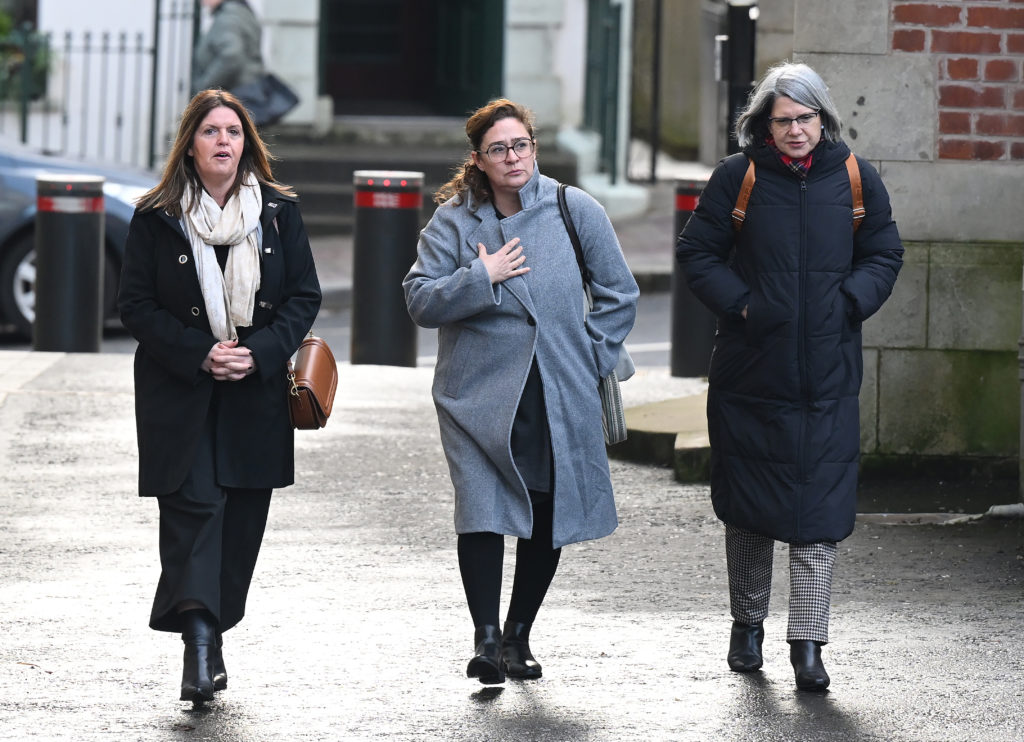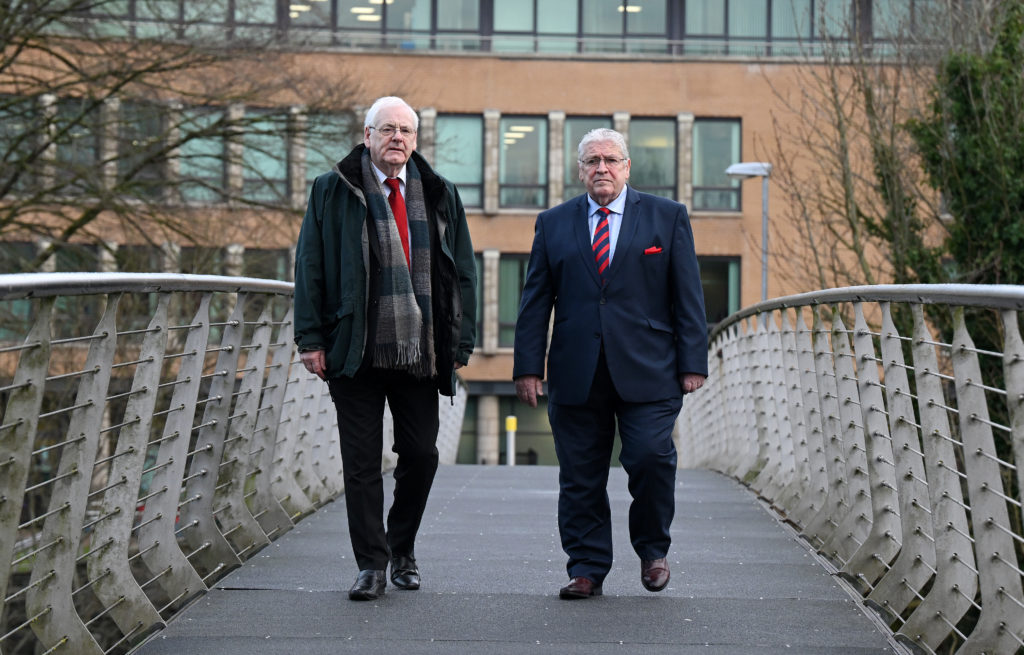THE Omagh Bombing Inquiry began formally this month.
The inquiry, an independent statutory public inquiry, is looking at whether the deadliest incident that took place during the Troubles could reasonably have been prevented by the authorities.
The car bomb in Omagh was claimed by IRA splinter group The Real IRA, who opposed the Good Friday Agreement.
In the initial sessions the Omagh Inquiry has been actively conducting commemorative hearings.
During these, family members have been delivering poignant pen portraits of their loved ones and what their absence has meant to them.
One of the earlier submissions was dedicated to Brian McCrory, a former fireman with a love for photography. He was 54 when he was killed in the bomb.
His daughter, Louise, spoke of the enduring impact of his absence on their lives. She said that at important family events such as weddings they always visited Brian’s grave first.
 Paloma Abad Ramos (centre), whose 23-year-old sister Rocio Abad Ramos was killed in the Omagh bombing, makes her way into the Omagh Inquiry on January 28, 2025
Paloma Abad Ramos (centre), whose 23-year-old sister Rocio Abad Ramos was killed in the Omagh bombing, makes her way into the Omagh Inquiry on January 28, 2025The inquiry has also heard from Spanish families affected by the tragedy. Paloma Abad Ramos, sister of 23-year-old Spanish victim Rocio Abad Ramos, shared the profound shock and enduring grief her family experienced upon learning of Rocio's death during a student exchange trip to Ireland. They had been staying in Donegal before making the trip to Omagh.
These commemorative hearings are scheduled to continue until February 20, 2025.
The enquiry, chaired by Lord Andrew Turnbull, will subsequently examine whether the bombing could have been prevented, focusing on the actions of UK state authorities at the time.
 Michael Gallagher (left) who lost his son Aiden Gallager, and Stanley McCombe, who lost his wife Ann McCombe, in the Omagh bombing make their way into the Omagh Inquiry on February 4, 2025 in Omagh, Northern Ireland
Michael Gallagher (left) who lost his son Aiden Gallager, and Stanley McCombe, who lost his wife Ann McCombe, in the Omagh bombing make their way into the Omagh Inquiry on February 4, 2025 in Omagh, Northern IrelandTimeline of the Omagh bomb
15 August 1998: The Omagh bombing
On a sunny Saturday afternoon, August 15, 1998, a car bomb exploded in the town centre of Omagh, County Tyrone. The device, planted by the dissident republican group the Real Irish Republican Army detonated at around 3:10 PM on Market Street, a busy shopping area filled with locals and tourists. The bomb killed 29 people, including a woman pregnant with twins, and injured over 220 others, making it the deadliest single incident of The Troubles. The victims included Protestants and Catholics, children and elderly, and people from as far afield as Spain.
Immediate aftermath: August 1998
Both the Irish and British governments condemned the attack, and the Real IRA faced intense backlash, even within republican circles. Sinn Féin roundly condemned the bombing.
In the days following the bombing, both Irish and British governments moved quickly to introduce new anti-terrorism legislation.
Investigations and Early Arrests: 1998-2001
The initial investigation faced significant challenges. The Real IRA had given multiple, misleading warnings before the bomb detonated, causing RUC officers to inadvertently direct people closer to the car bomb. This added confusion and led to questions about the handling of the warnings. The RUC spearheaded the investigation, with support from An Garda Síochána.
In 1999, key suspect Colm Murphy was arrested in the Republic. In January 2002, he was convicted of conspiring to cause the Omagh bombing. But his conviction was overturned on appeal in 2005 due to issues with how Gardaí handled his interrogation.
Seamus Daly, another prominent suspect, faced legal action over the years but was never convicted in a criminal court.
Civil case against suspects: 2009
Frustrated by the lack of criminal convictions, the families of some victims pursued a landmark civil case against individuals they believed were responsible. In 2009, the High Court in Belfast found four men— Michael McKevitt, Liam Campbell, Seamus Daly, and Colm Murphy —liable for the bombing. They were ordered to pay £1.5 million in damages to the victims' families.
Renewed investigations and calls for public inquiry: 2013-2021
In the years that followed, the victims' families continued to push for a full public inquiry, believing that both the British and Irish governments had failed to act on intelligence that could have prevented the bombing. Reports emerged that MI5, the RUC, and Gardaí had intelligence suggesting an attack was imminent, but coordination between agencies was poor.
In 2013 the BBC’s Panorama programme aired an investigation suggesting that intelligence failures on both sides of the border may have contributed to the tragedy. This reignited calls for an independent inquiry.
High Court ruling and public inquiry announcement: July 2021
In July 2021, the Belfast High Court ruled that the British government should investigate whether a more thorough cross-border intelligence operation could have prevented the bombing. Mr. Justice Mark Horner stated that a human rights-compliant investigation was required to address the families' concerns.
Following the ruling, in February 2023, Northern Ireland Secretary Chris Heaton-Harris announced a full public inquiry into the Omagh bombing.
The inquiry aims to examine whether there were any failings by state agencies, particularly regarding intelligence sharing between British, Northern Irish, and Irish security forces.
The Irish government has indicated its willingness to cooperate fully.

